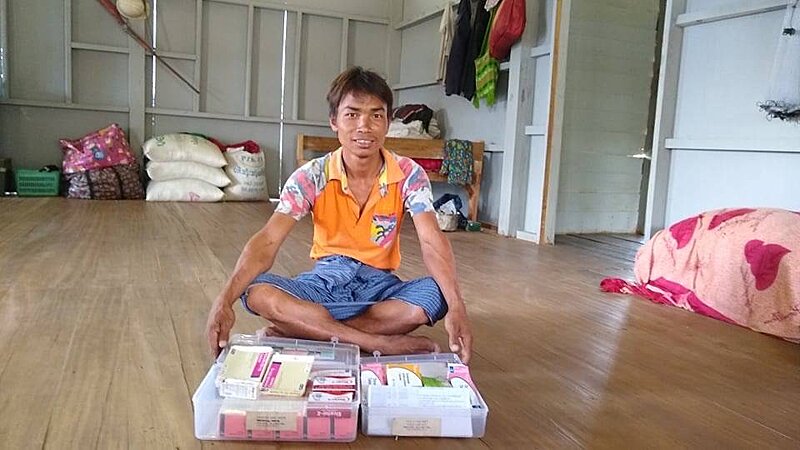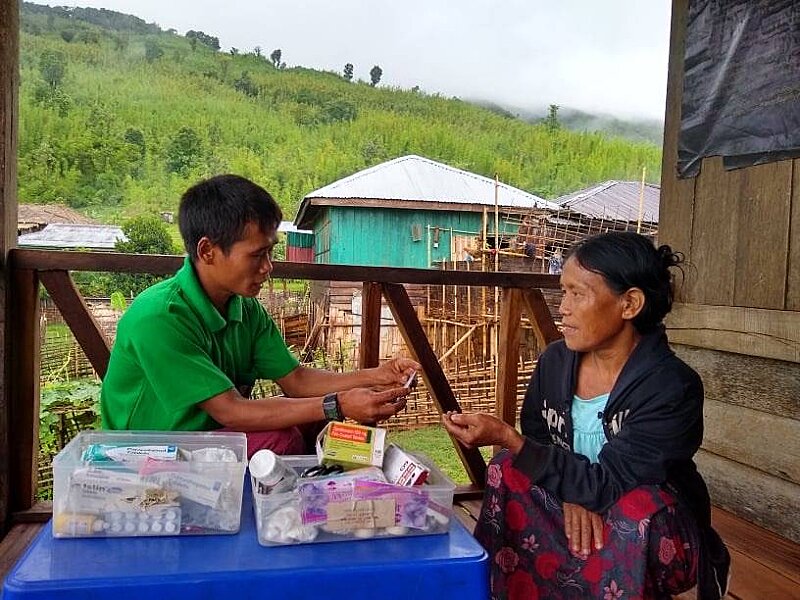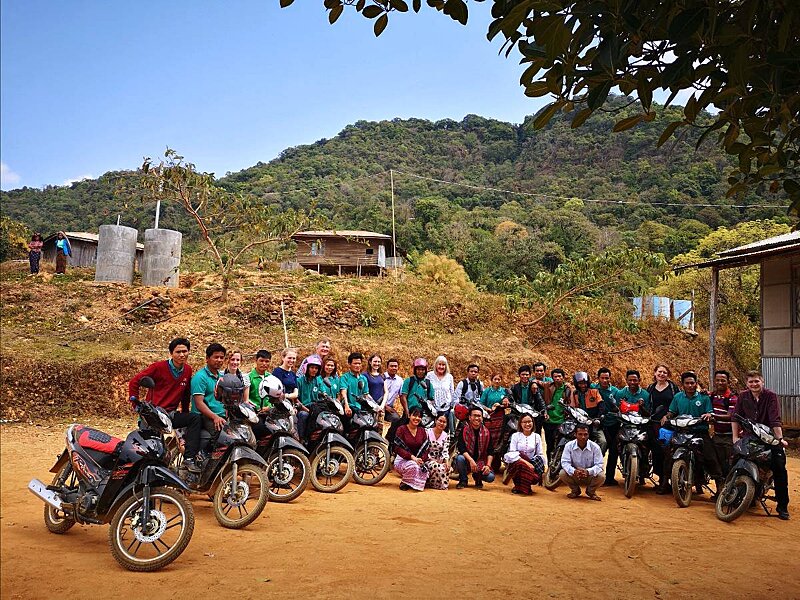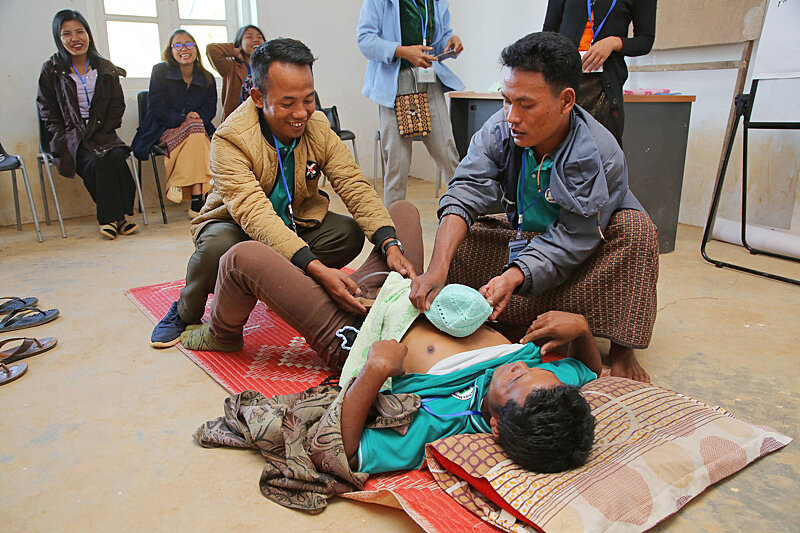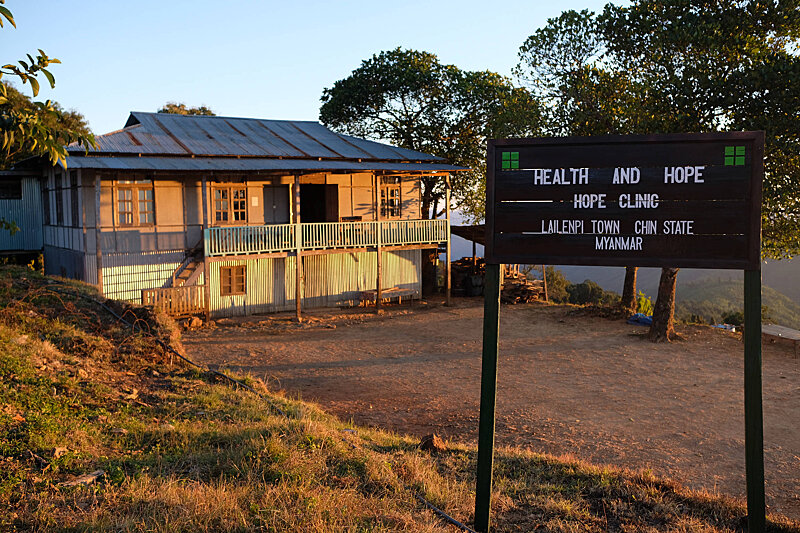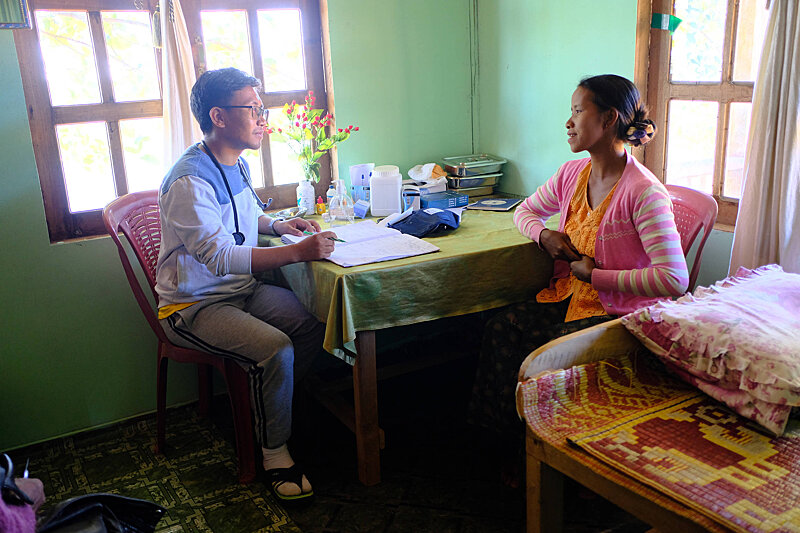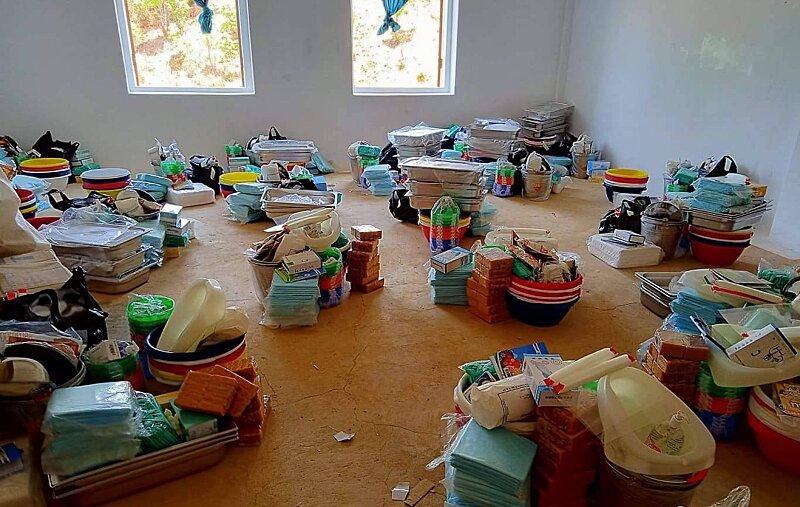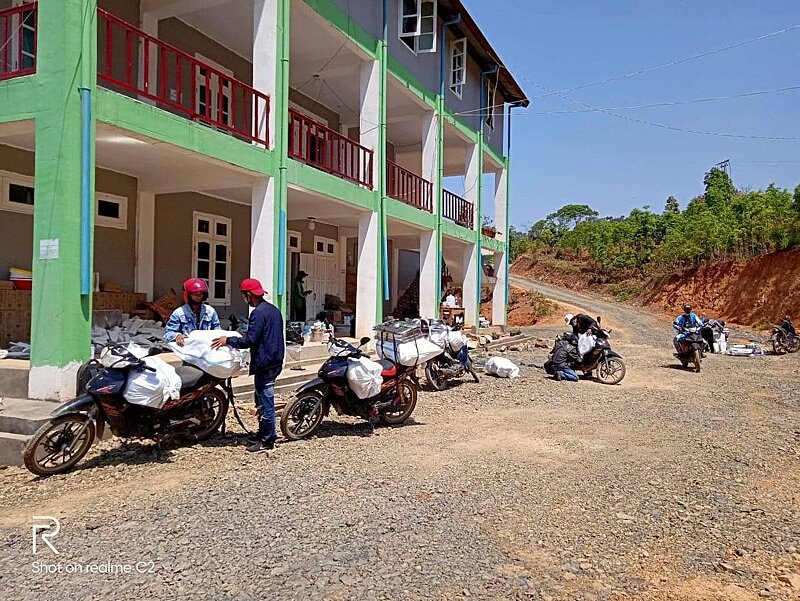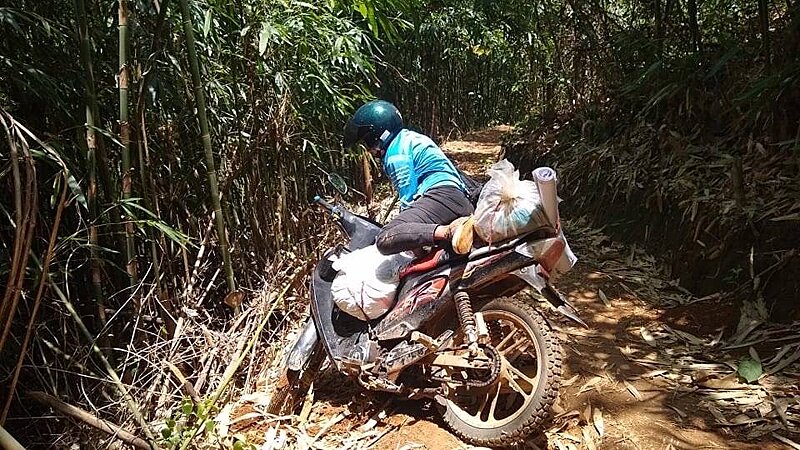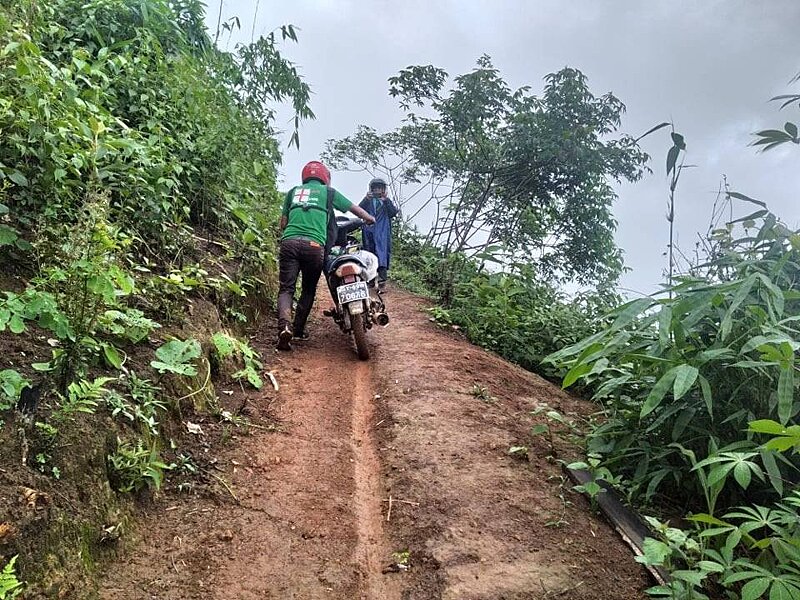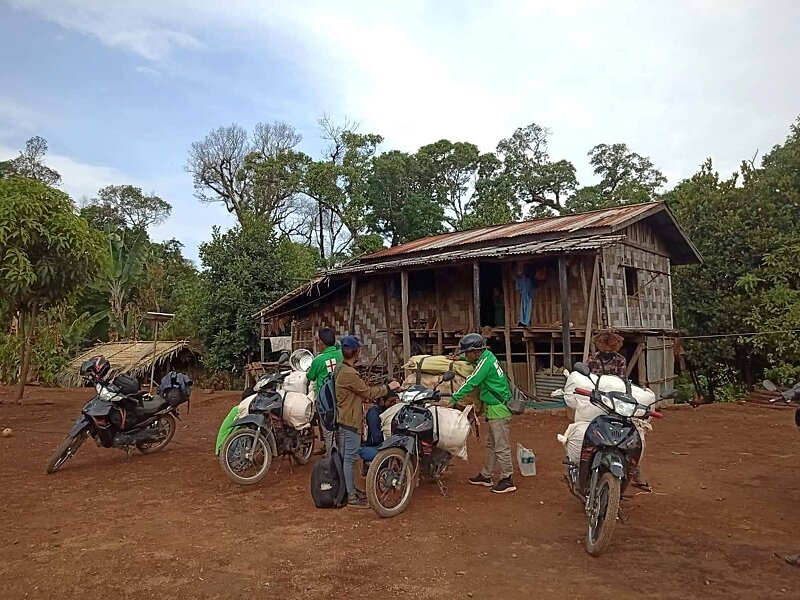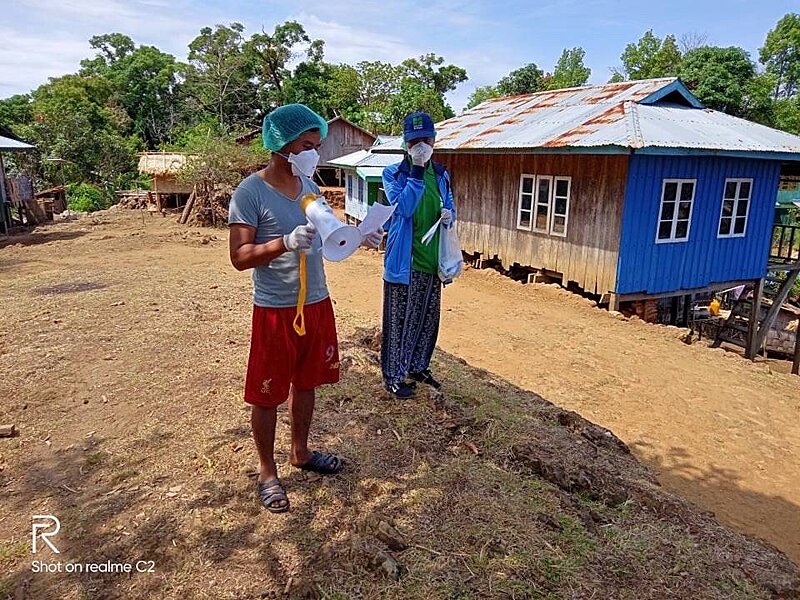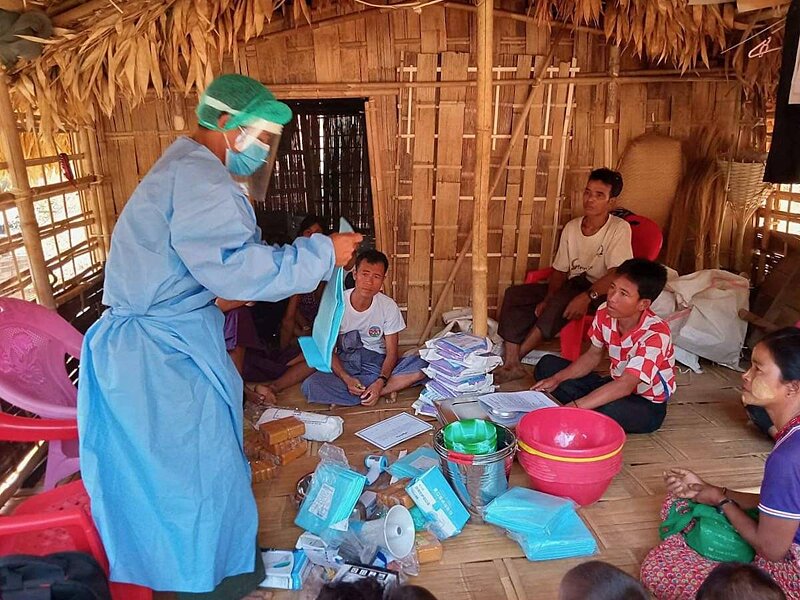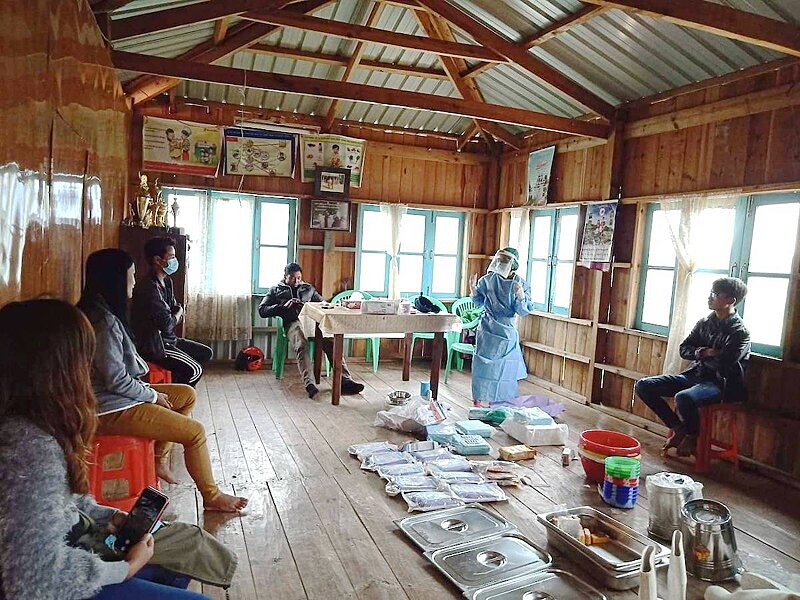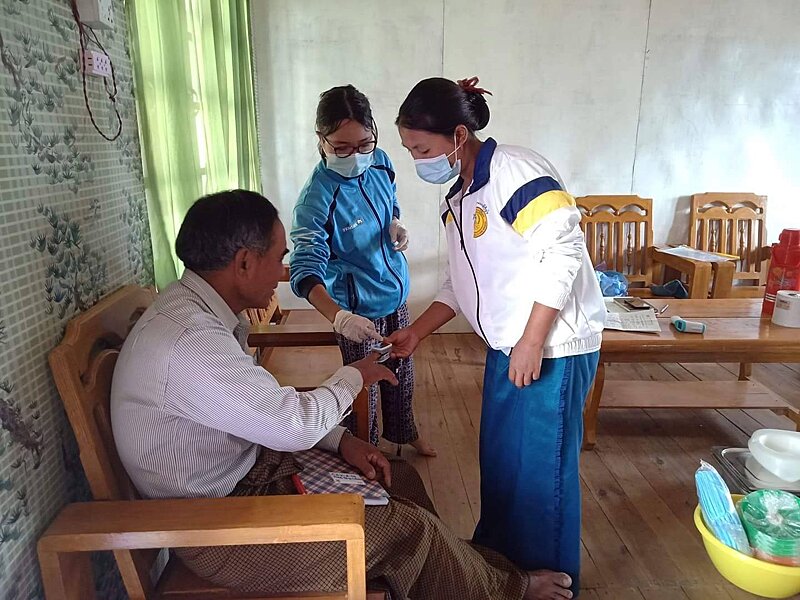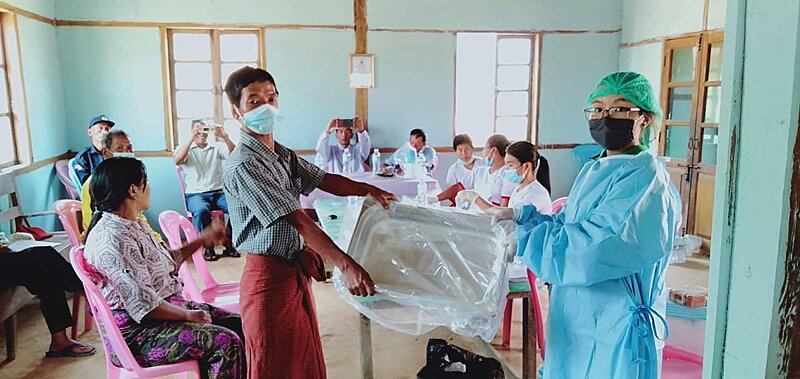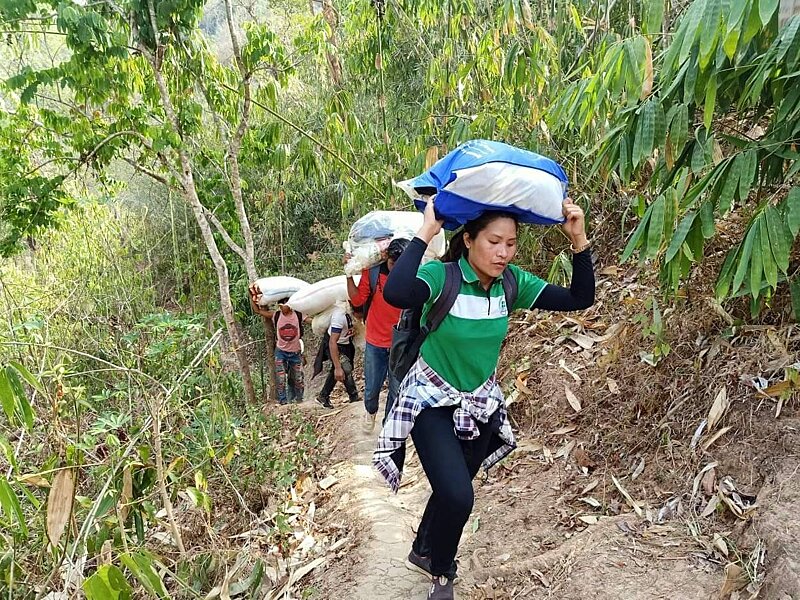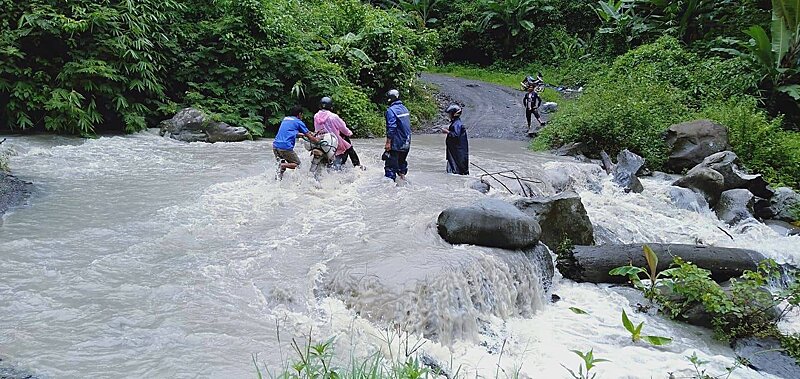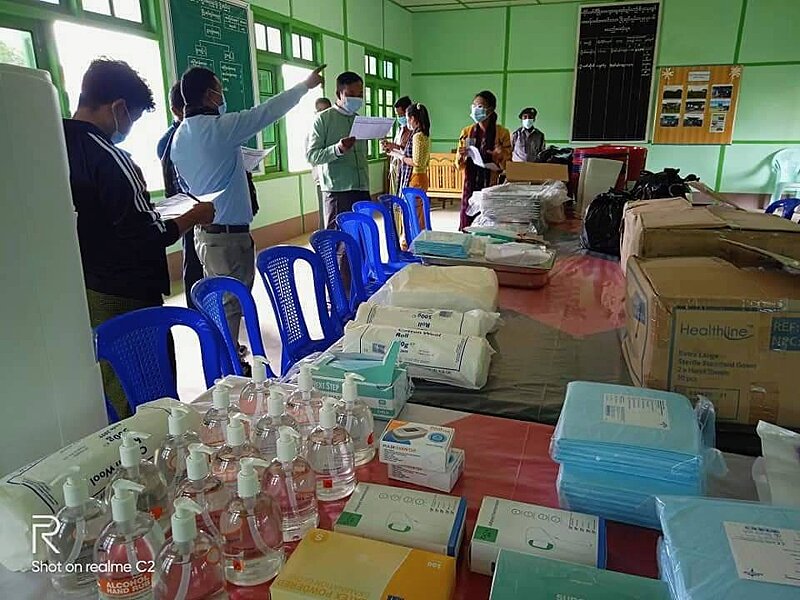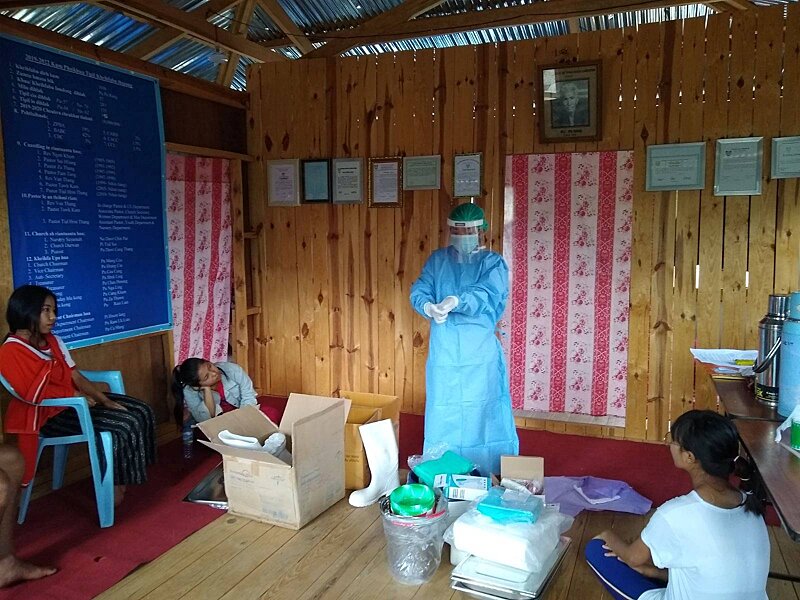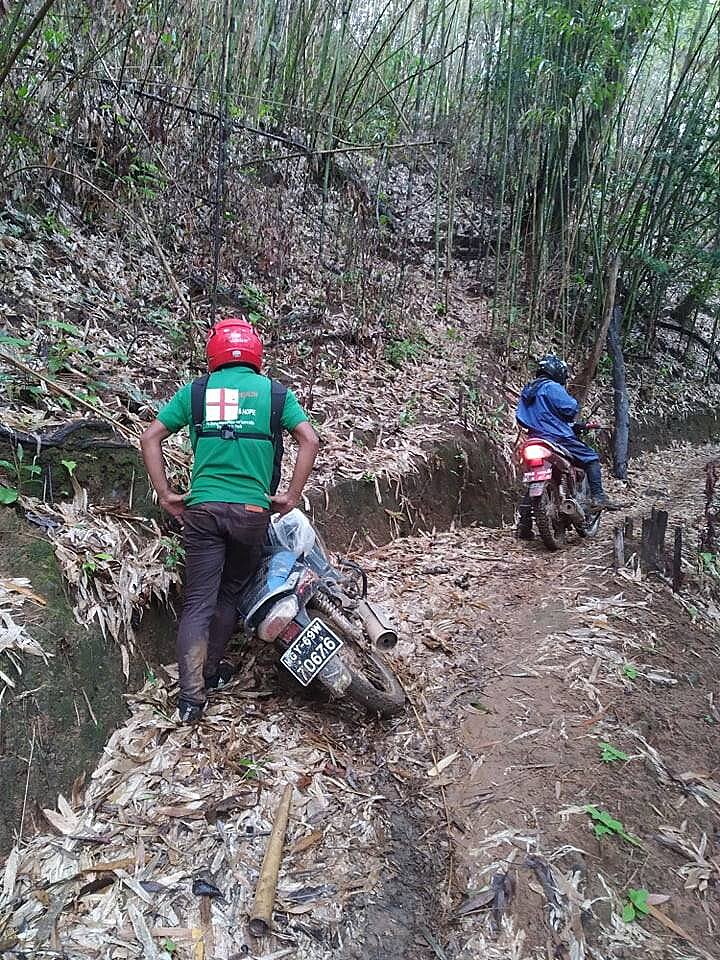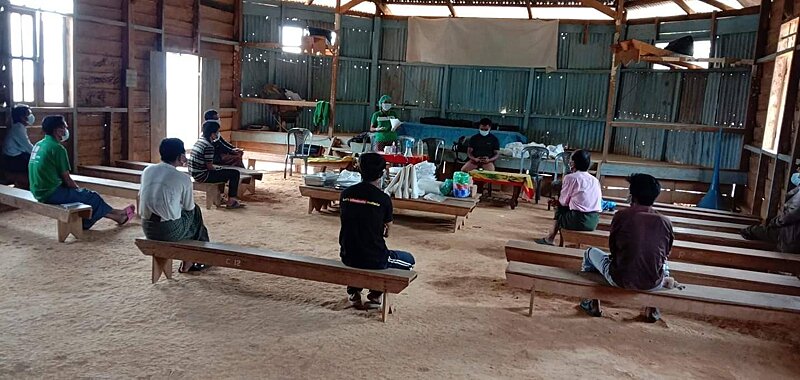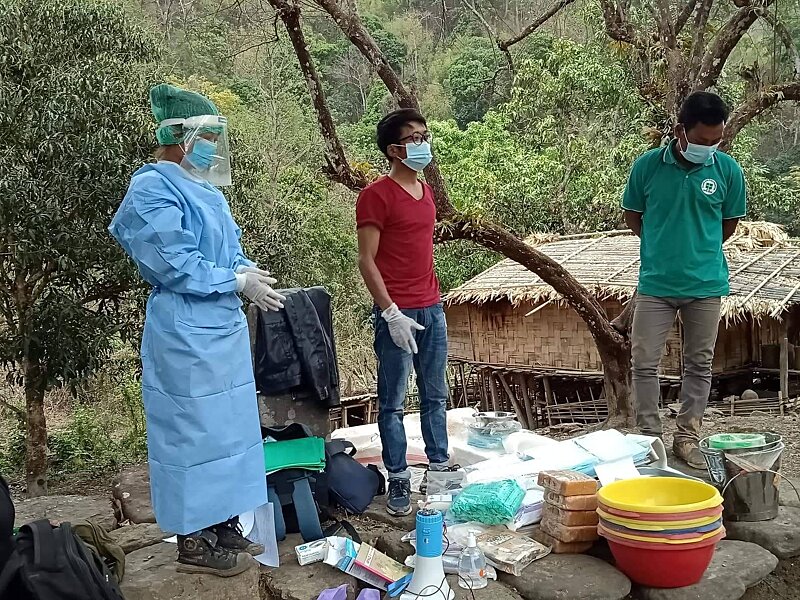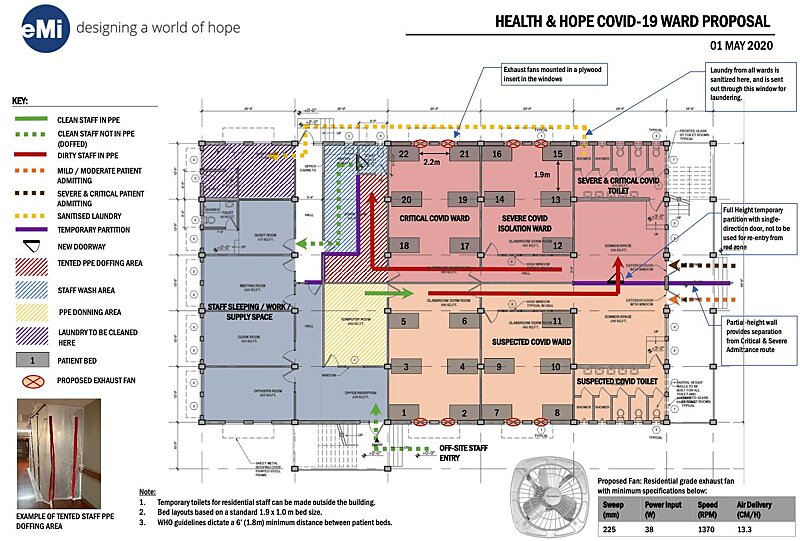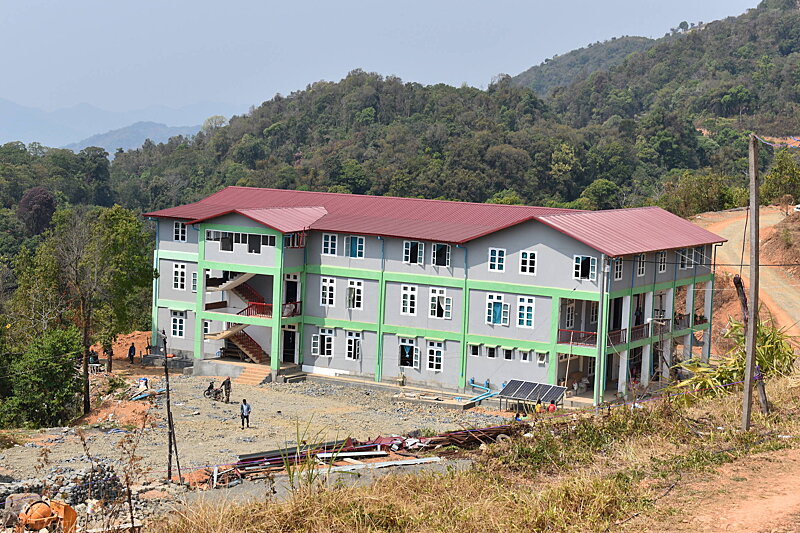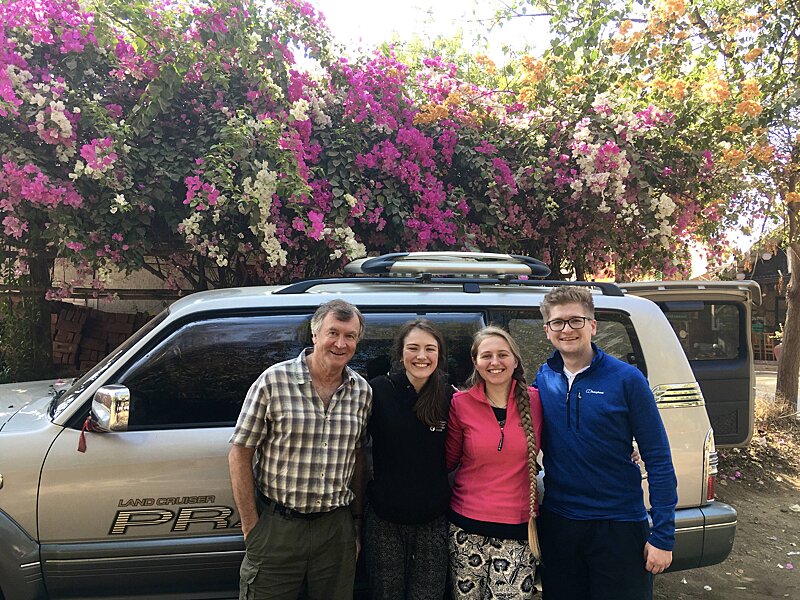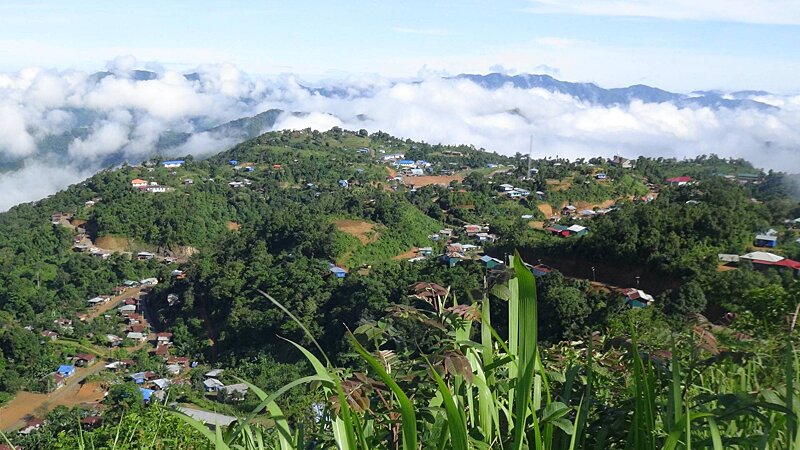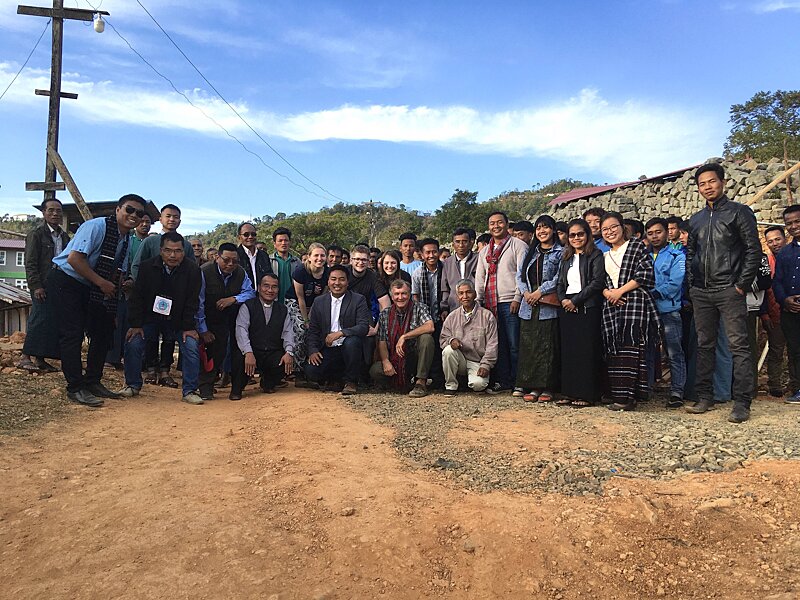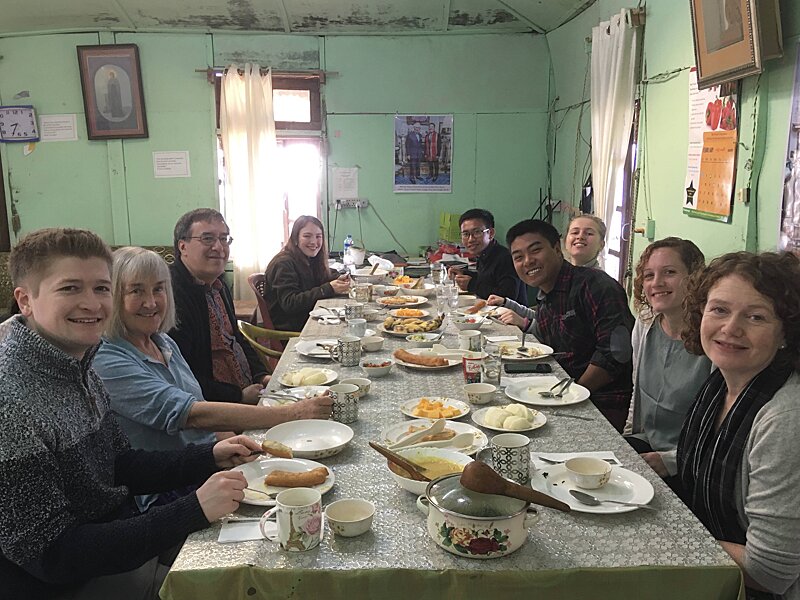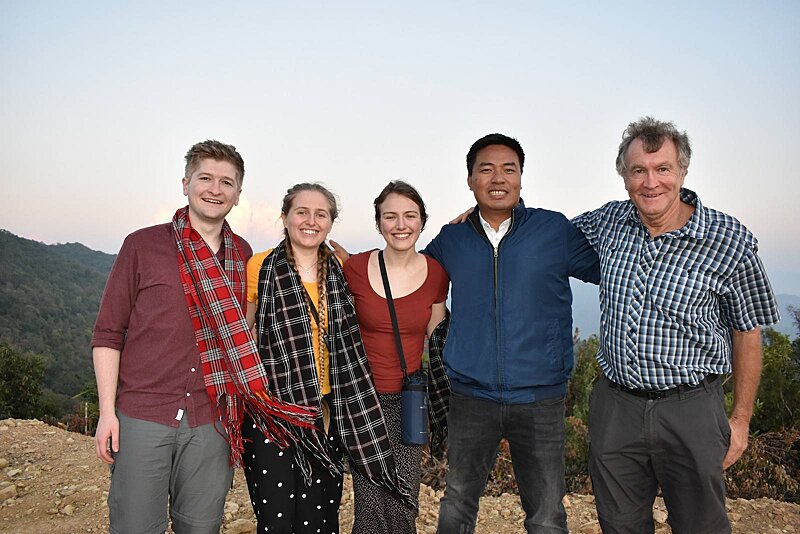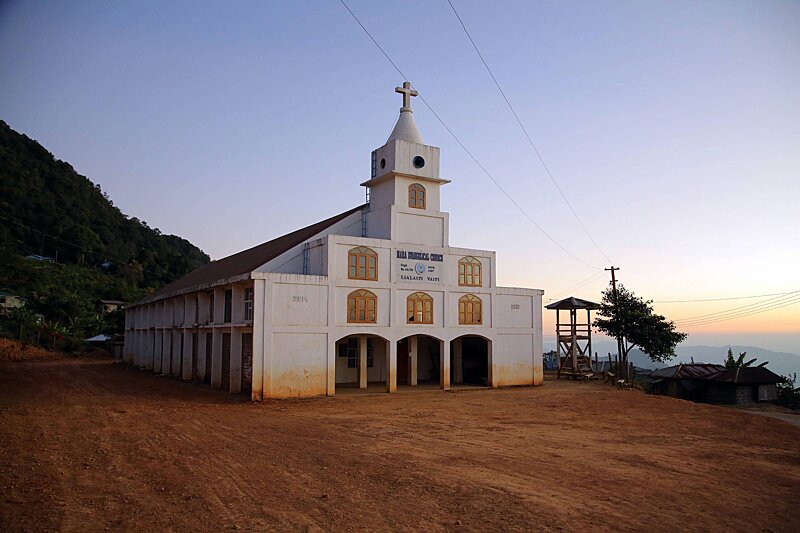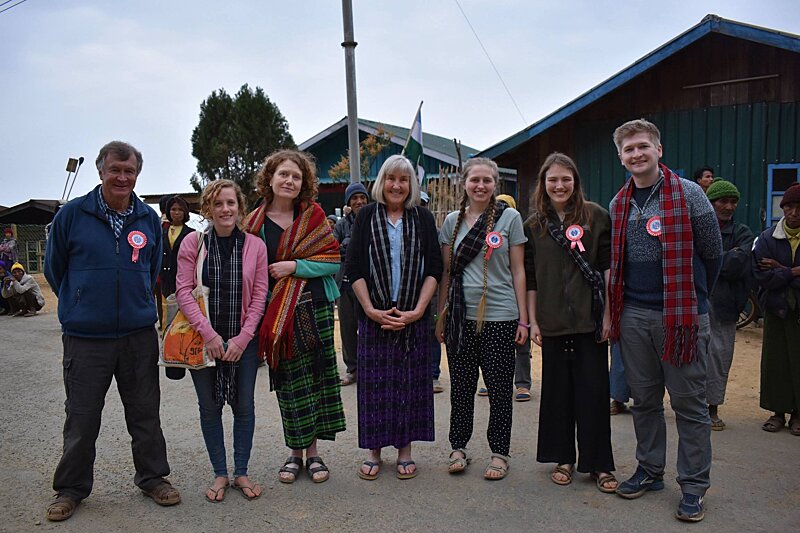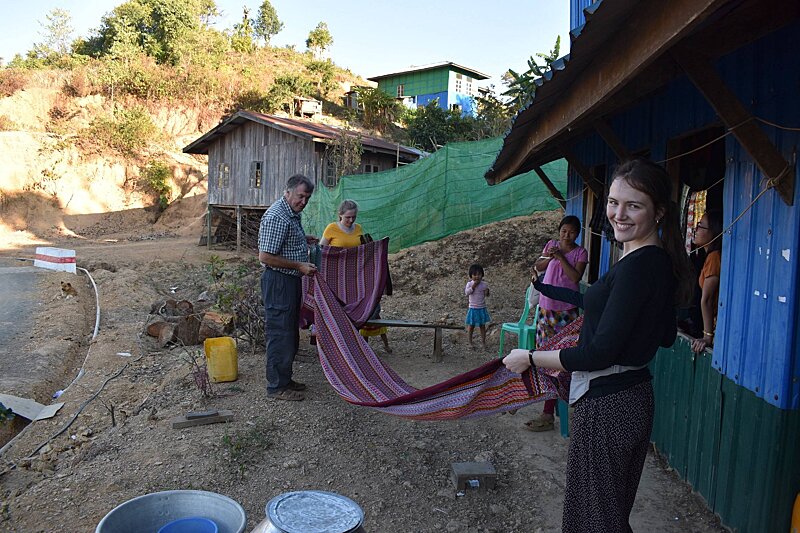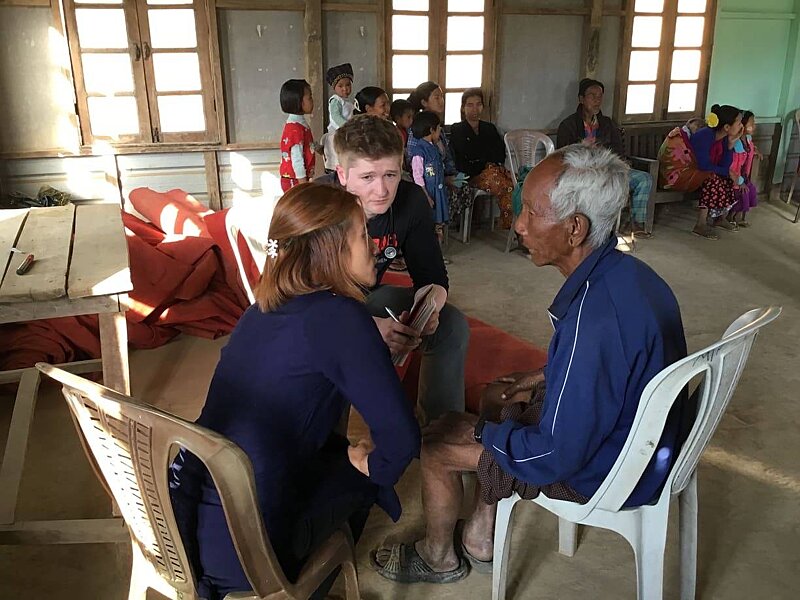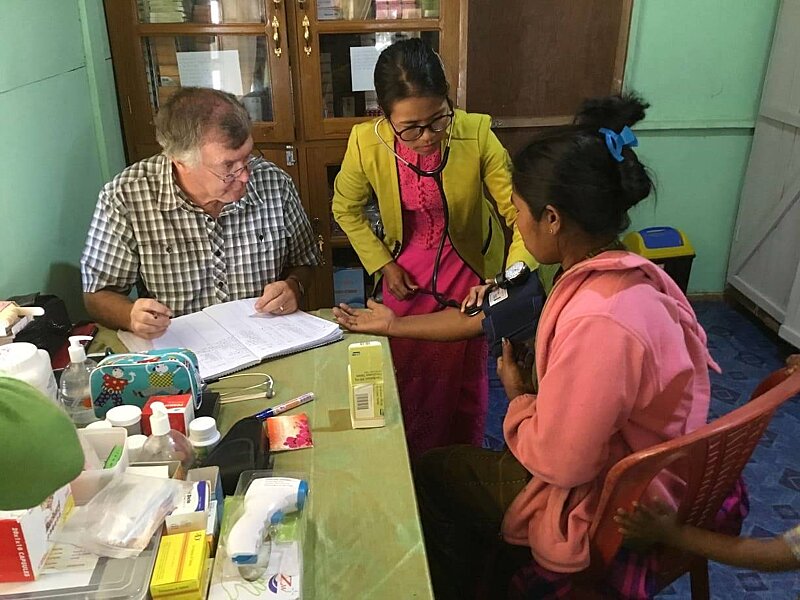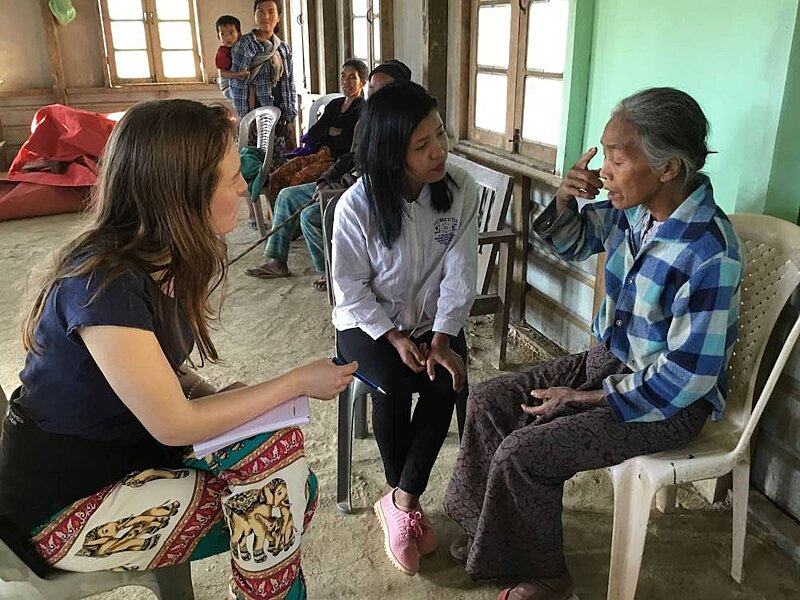Latest news
Achieving more through partnership
Posted on 21st July 2020 by Philippa Wilford
At Health & Hope we believe in the power of great partnerships.
We have a big vision, and we recognise that we can’t achieve it on our own. That is why we seek to build close relationships with partners who can help us achieve our mission.
One organisation we have partnered with since 2016 is International Health Partners (IHP). Based on a simple idea, its model involves matching medicine and health supplies to need. It is a global health charity that coordinates the safe and responsible donation of medicines and health supplies to people who lack access.
Through our partnership, IHP has provided a broad range of medicines and supplies such as antibiotics and multivitamins as part of our Community-led Health Programme and Hope Clinic, based in Lailenpi. In the last year, our partnership with IHP has enabled the provision of 53,000 treatments in the communities where we work.
"Health & Hope’s work in Chin state to train community health workers allows communities to access healthcare care across a large rural area – otherwise people would have to travel days to reach a healthcare facility,” says IHP’s programmes manager, Hannah Dean.
She adds: “We support Health & Hope with medicines and supplies, enabling community health workers to use kits that provide a range of primary healthcare treatments for different medical needs. We are delighted to support Health & Hope with a programme that is having such a huge impact across the region. The community health worker model should be encouraged across the sector as an effective way to deliver healthcare in remote areas."
Access to medication is a vital component in providing healthcare in a rural setting. These resources are highly sought after by the Community Health Workers (CHWs) whom we have trained throughout the region. Many patients with minor illnesses and injuries seen by the CHWs can be easily treated when these basic medications are available.
Through our Community-led Healthcare programme, we run a series of workshops each year, providing specialist training to Area Co-ordinators. The Co-ordinators disseminate this knowledge to the Community Health Workers who they oversee in their areas. The Area Co-ordinators are given bespoke training on safe use of medicines; contraindications; and guidance on how to log and track prescriptions.
In a recent random sampling of 54 villagers in nine villages, it was seen that the medicines distributed through the Health & Hope / IHP partnership were generally the only means of provision for villagers in the region.
In addition to our mobile community programme, IHP medicines have supplied Hope Clinic, based in Lailenpi, which treats close to 2,000 patients each year.
The joy of receiving supplies
This is Revai, one of the Health & Hope trained CHW’s, receiving his pharmaceutical supplies. These are transported in rice sacks by motorbike, and then kept in secure boxes along with medication guidelines. There was incredible joy and a deep sense of gratitude on receipt of the supplies.
Revai was trained by Health & Hope in 2009-2010 and has served his village and community ever since. Common illnesses he has treated include typhoid, fever of unknown origin, diarrhoea, headaches and abdominal pain. Women with deep lacerations to limbs following injuries collecting firewood and motorbike accidents are also prevalent. Revai serves a small village of 30 households and spoke of how difficult it was to manage sick and injured patients without medications. Diagnosis is only part of the story for patients, and without appropriate medicine some do not get better.
Where medications are not available, he will write down what is needed and leave it up to the individual or their family to source them. Even if they have enough money, medication can be difficult to find. There are also a large number of counterfeit products sold at local markets, and so any medicine bought this way comes at a risk.
Where medication is available in local shops and pharmacies, there is a higher cost involved. Families in Chin State place a very high importance on their health and are even willing to go into debt to purchase medicine. This is a growing problem for households not just in Chin State, but across the whole of Myanmar.
Being able to provide medications, thanks to our partnership with IHP, not only works to avoid significant family debt, but also ensures timely treatment. This dramatically improves outcomes for patients, and reduces the risk of secondary conditions.
We value working with an organisation that has vital networks and expertise, and one that shares our values and mission.
Our partnership with IHP has enabled us to achieve so much more than we could manage on our own.
How Health & Hope are responding to a pandemic
Posted on 17th July 2020 by Philippa Wilford
The Coronavirus pandemic has brought a host of new challenges to the rural poor in Myanmar (Burma) with the lockdown jeopardising the local economy, healthcare, education and food systems.
Health & Hope is addressing the crisis through our COVID-19 Response project. Alongside this, our ongoing community services remain as vital as ever.
We launched our response on 21st April 2020. Five medical teams undertook an enormous logistical challenge, delivering resources and health education to 135 remote villages in Chin State, in addition to reaching 4 makeshift camps for Internally Displaced People (IDP) in Samee.
Hospitals and rural clinics in Chin State also had diminishing access to resources as the country went into lockdown and we were pleased to provide Personal Protective Equipment (PPE) and vital medical supplies to 13 hospitals and rural clinics.
In addition, our health team produced educational leaflets, posters and videos in local languages to stem a tide of confusion in villages across the region.
What was achieved in numbers:
Access into villages across Chin State varies due to location and proximity to roads and larger towns. The majority of villages targeted can only be access by motorbike or foot on jungle paths. Furthermore, the beginning of the monsoon season also brought significant challenges.
The quality of local education and access to information was evident as the team arrived in each village. In some areas the team were welcomed with open arms, in others there were check gates set up on the village perimeter. The villages closer to the larger towns already had a good understanding of COVID-19, although there were many rumours and myths about the virus. In the more isolated villages, communities had very limited understanding or no prior knowledge about the pandemic.
Villagers in Chin State had generally reacted to the lockdown in one of two ways. For those who had access to news or social media, there was a certain amount of fear due to the pandemic’s global scale. By contrast, the second response was one of apathy. Many people could not see how they could contribute to preventing an outbreak in their community.
At the same time, very real issues of the lockdown had began to have an impact on livelihoods.
Whilst the lockdown was vital for curtailing the spread of the virus, these measures have had significant consequences for communities whose resources are already precarious. Villagers are struggling with increased prices for commodities, alongside the closure of markets to sell their goods.
Travel restrictions also mean that some communities no longer have access to government healthcare, and so other health issues, unrelated to the pandemic, are going untreated. A recent survey of 60 villagers in 10 villages reported that Health & Hope-trained Community Health Workers continued to be the main or only healthcare provider in their village, highlighting that our work remains just as vital during these times.
Even if there is no significant spread of COVID-19 into rural areas, people will continue to face enormous challenges as they struggle to meet their daily needs, especially now that the monsoon season approaches, and the next rice harvest is not until the autumn.
Concern for those in conflict areas
The concerns are even more grave in southern Chin State where conflict continues. Health & Hope teams travelling in these areas faced additional challenges due to curfews.
There are currently over 11,000 Internally Displaced People (IDPs) registered across Chin State. However, actual estimates for the last 12 months are as high as 30,000 with people suspected of hiding in the jungle, or having moved to live with relatives in other villages.
People in IDP camps have inadequate sanitation and access to clean water, which poses a serious risk to health. In the camps, each family is responsible for cooking their own food, with few facilities or resources for doing so. Our teams could see little formal NGO activity taking place, with rice and vegetables being delivered just twice a week.
Planning for the year ahead
Health & Hope’s Training Centre in Lailenpi has been prepared in case of an influx of cases in the community. Preparatory work by our partner EMI (Engineering Ministries International) has been undertaken to identify the best method for managing patients should a short-term hospital ward be required. However, signs are positive that there are currently no known cases of COVID-19 in southern Chin State.
Seasonal challenges
The monsoon season significantly hampers our ability to stay in touch with more remote communities. In many cases, entire areas become impassible. One positive outcome is that the isolation is likely to limit the potential spread of the virus. However, it also means that monitoring and support becomes more difficult.
The local team will be undertaking a futher needs assessment in 30% of the villages visited under this project in July, to provide ongoing monitoring and support to the communities.
“When the village leaders announced that a team from Health & Hope would be coming I was really happy. They have provided so much to our village over the years and trained our Community Health Worker. Thank you so much for giving us the proper knowledge and information about this disease and equipment to protect us. God bless you and your colleagues.”
- Mr Hraile, Farmer
If you have any questions about our COVID-19 response or how you can support our work, please contact our Partnerships Manager, Philippa Wilford.
Thank you for your support which is helping us to provide life-saving assistance to people in some of the most remote communities in the world.
Diary of a medic
Posted on 19th June 2020 by Philippa Wilford
Snapshots from my trip to Lailenpi with Health & Hope by Bill Hunter
Saturday — Monday
We arrived in Lailenpi after nearly three days of travel from Southampton! After our long-haul flight, we relaxed by a pool at the hotel preparing for the next section of our journey. Both Hannah, our host, and Dr Nick — a retired GP who’d travelled out with us to lead much of the planned training programme — warned that the 2-day drive from Bagan to Lailenpi would be gruelling.
We thought we were prepared, having loaded up on snacks and water, books and games for entertainment. Our cameras were charged, and we were feeling positive.
It was about an hour into our journey, when Dr Nick said how much better these roads were than what lay ahead that I realised how wrong we’d been — I’d already banged my head three times! On the plus side, the scenery was mind-blowing and we got to see an elephant!
Once we made it to Lailenpi, we were greeted by the whole Health & Hope team holding a large banner. They gave us traditional Chin scarves, and we all sat down for an incredible meal. This was our first taste of the amazing hospitality we enjoyed throughout our stay. Already overwhelmed by the generosity shown to us, we collapsed into bed, very grateful to have arrived!
Tuesday
It was straight into an early start for our first day! After a fantastic breakfast we got stuck into teaching with Dr Nick as part of the Community Health Worker (CHW) training workshops. We went over their medicines list, and were incredibly impressed by the level of knowledge of the CHWs.
After a full day, we sat down for dinner, then Dr Sasa took us up to see the new airstrip being built. The village choir came along and sang Hallelujah while the sun set around us. Afterwards, Dr Sasa took us to his Dad’s house for tea. The variety to the day’s event felt intense, but absolutely wonderful.
Friday
This was the first day I had the chance to go to the Midwife-run workshops where they were teaching on Breech Birth and Shoulder Dystocia. It was genuinely better than any teaching I’ve had in the UK on either of the subjects, even after five years of medical school and an eight-week placement on Obstetrics, which had all been good! I came away feeling like I’ve never been more prepared to deliver a baby.
This evening I had one of the most crazy experiences of my life! There was a 91 year old preacher arriving from India for a church conference that also happened to be running in Lailenpi. This preacher was the last Mara man to have been baptised by the original missionary who came over from England to Myanmar. Dr Sasa thought it would be a respectful symbolic gesture to have us carry him through the town to the church! It was amazing to take part in such an incredible display of faith and thankfulness, and was like nothing I’d ever experienced in the UK.
Sunday (sometimes known as a day of rest!)
At the end of a very full week, we were told we’d finally get some time to relax, and even have a lie in. None of that happened but I couldn’t have been happier.
Dr Saki kindly gave me a Long Gee to wear after he caught me admiring one earlier in the week so I got to go to Church in traditional clothing. We danced with some of the local people and sang ‘Sing Hosannah,’ which ended up getting thousands of views on Facebook!
After lunch, we all sat on the balcony and sang hymns and songs while Dr Saki played the guitar. It was one of the most peaceful and enjoyable experiences I’ve ever had, and I felt privileged to share in this time together.
Some of the HHM staff took us on a walk through the town afterwards. We ended up stopping at a stranger’s house for bananas, seeing a local seamstress at work, and a hairdresser’s. It was great to see the community; everyone was so kind and generous. One of the HHM staff members told us if he wanted to, he could walk the seven days to the capital city, staying with strangers who would happily host him even if they didn’t speak his language. It was amazing to witness these expressions of Christian kindness at their most pure.
On the way back, we stopped for coffee at the Head Preacher’s house, and at a local school where students were preparing for exams. We were able to pray for the children and talk to them about our own experiences of exams and how to prepare for them.
We got back to our rooms well after dark, absolutely exhausted from this ‘day off’ but very happy!
Wednesday
It was another very full day in the clinic seeing patients.
Earlier in the week, I’d seen a patient who had some mental health issues that sounded very like PTSD from a terrible experience she’d been through. Unfortunately, it seemed little could be done as facilities for mental health care don’t exist.
I happened to mentioned this over dinner, and how sad it was that complex needs such as this patient’s are difficult to support. Afterwards, Dr Saki pulled me aside and asked who I’d been talking about. I found it hard to give many details, but he persisted, asking which nurse had been with me. He went straight away to track her down and follow up with the patient.
There were many small moments like this, which had I not been directly involved, I simply wouldn’t have noticed. Clearly there was more care that could be offered to this patient than I realised. It was another reminder of the kindness of everyone within this tight-knit community.
At that dinner, we were also joined by members of the army who treated us to a song — yet another memorable moment!
Friday
Sadly this was our last day in Lailenpi. I spent it in the clinic. Later, we got to take part in a stone laying ceremony for the new student accommodation. Then it was time to say goodbye to everyone who had been so kind to us.
Saturday
We left early this morning. The drive back was shorter than the way up as it was downhill all the way! We were very sorry that the outbreak of Covid-19 meant we needed to make emergency plans to return home rather than continuing our time in Myanmar. All in all, it was an incredible experience. I feel so privileged to have taken part.
Thank you to everyone at Health & Hope.

